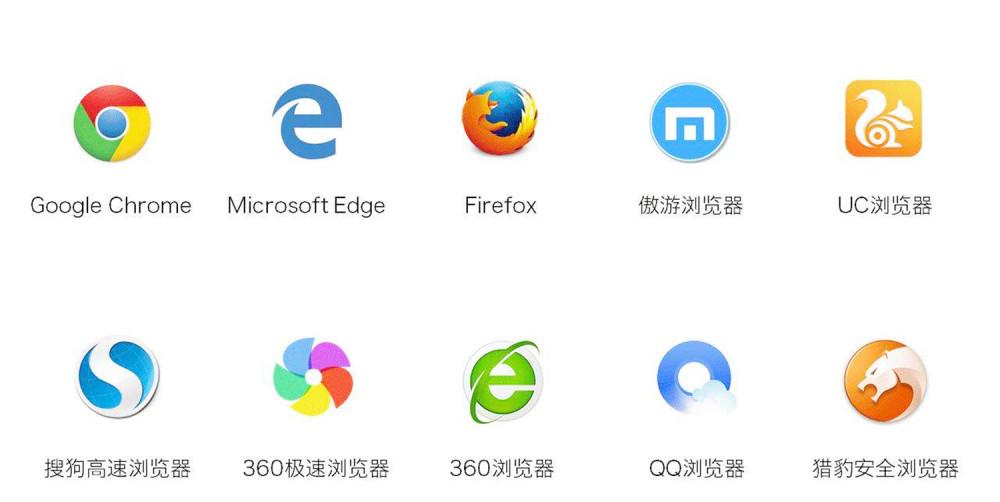
Dear officials and gentlemen, I don't know what browser you usually use to surf the Internet? On this question, different people may have different answers, after all, the browsers on the market today are diverse and distinctive, and everyone will choose different browsers according to their own usage habits.
But what many people don't know is that in fact, China's browser market has long been monopolized by foreign countries. According to professional data, at present, 70% of China's browser market is occupied by Google. Many people have doubts about this, obviously in daily life, everyone is used to using domestic browsers such as QQ browser, UC browser, 360 browser, why does this google have a monopoly situation?
Domestic browsers are derived from OEM
Although there are thousands of browsers around the world, most of them are "brothers in the same door". In fact, there are only 4 browser kernels in the world, namely Google, IE, Firefox, and Safari. Other browsers are basically based on these four kernels for self-customization and OEM finally built. The browser kernel that domestic netizens are most familiar with should be Google and IE.
IE browser in many people's impression is synonymous with old, backward, most of the domestic computers in the factory will generally come with an Internet Explorer, but few people will really use this browser. So many people joke that the most important role of Internet Explorer is to download other browsers. But in fact, this view is a far underestimation of the power of Internet Explorer.
We all know that the most widely used in China at present, the most used may be Baidu browser, but what everyone does not know is that the kernel of Baidu browser is actually the IE kernel. The biggest advantage of IE browser is good compatibility, strong stability, it is also the earliest browser to enter the country, so in the early years many domestic browsers have chosen to use the IE kernel. However, after the advent of Google Chrome, many domestic companies found that Google Chrome was better than Internet Explorer in terms of fluency and data processing efficiency, so many Internet companies began to switch to Google.
At present, the most famous sogou browser, QQ browser and 360 browser in China are actually Google kernels. Many people think that the domestic browser market is the same as the mobile phone market, domestic mobile phone manufacturers seem to have their own mobile phone systems, but in fact, these mobile phone systems are based on the Android system and independent customization, in essence, they are still Android systems.
Is it possible for Lao Mei to monopolize the browser market?
What is frustrating is that the four browser kernels mentioned above are all developed by US companies, which means that all browser companies around the world rely on the technology of US companies. This inevitably makes many people feel flustered, at present, Lao Mei is engaged in a global technology monopoly, and Lao Mei will not rule the entire Internet industry by monopolizing the browser kernel.
We all know that the browser is like the door of the Internet, almost the vast majority of Internet data and traffic must be transmitted through these doors, if lao Mei single-handedly close these doors, or close the door to some countries, it will undoubtedly make the target into a closed state.
In this day and age, losing the Internet is a disaster for a country, and it is likely to lead to a country's decline and demise. Thankfully, however, the scenario we fantasize about will not become a reality, because all four browser kernels have been open sourced, which means that these browser kernels are free for internet companies around the world, and no one can monopolize them.
This also means that although the browser kernel is developed by the United States, lao mei does not have the ownership and control of these browser kernels over these browser kernels, which is why everyone is not worried about the monopoly of the browser. Because of this, at present, domestic Internet companies have not invested much energy in the independent development of browser kernels, because research in this field is time-consuming and costly, and many companies think that this is a thankless effort.
However, domestic netizens still hope that more Internet companies can stand up and develop a browser kernel that belongs to China, after all, technology companies should not be too attached to immediate interests, and should have a more long-term vision.
summary
At present, the domestic browser kernel has been monopolized by foreign technology, which is very unfavorable for the development of the domestic Internet market, no matter how an industry wants to develop more smoothly, mastering the core technology is essential. Therefore, I hope that domestic Internet companies can wake up as soon as possible and not continue to indulge in take-it-or-treatism.
The browser market is also "tragically" monopolized, 70% of the market is occupied by Google, what about domestic browsers?
Domestic? OEM! The browser market has long since lost the position of domestic browsers